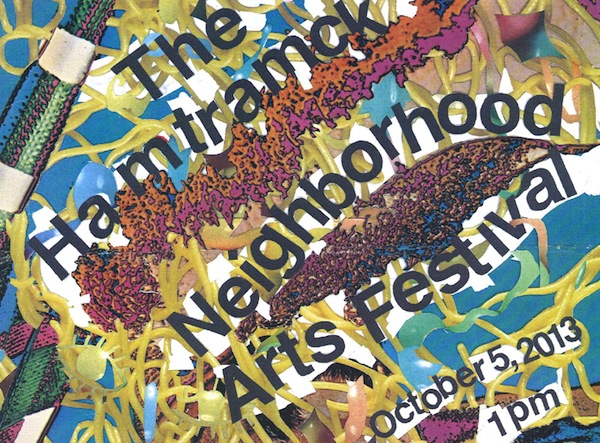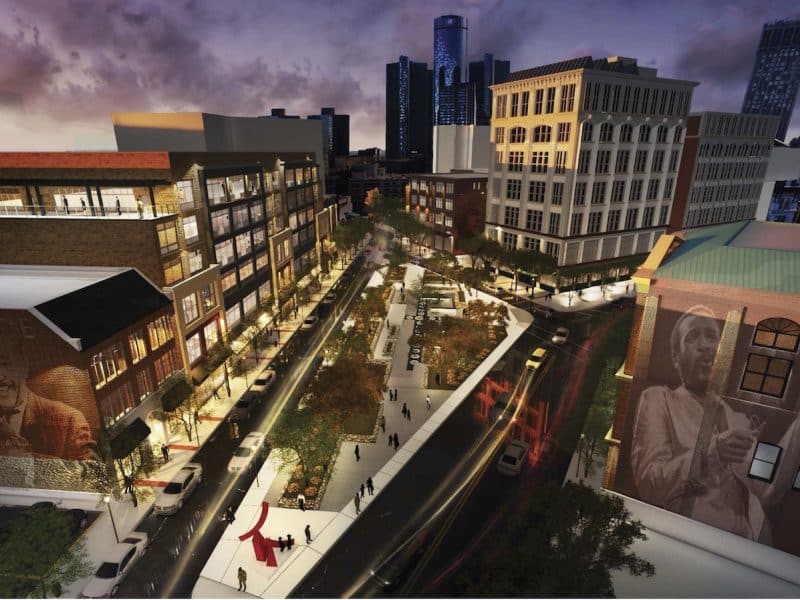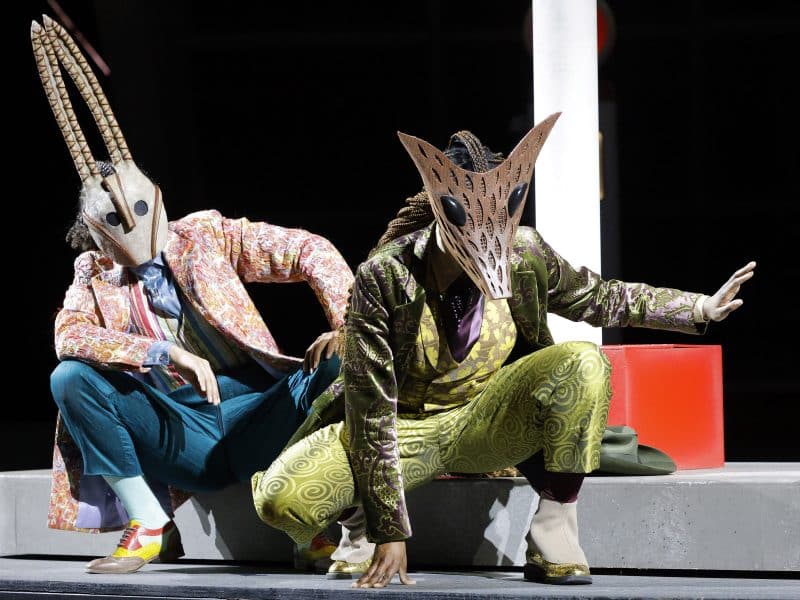Artists, musicians take over Hamtramck
Now in its fourth year, the Hamtramck Neighborhood Arts Festival covers the length of this "city-within-a-city-neighborhood" plus parts of Detroit up to Davison. Creative critical mass is accelerating, says Walter Wasacz, who suggests coming early and staying late at this daylong event.

Bikes work, too, of course, and cars. Though there are good reasons to leave your car at home and save on gas when trying to reach your hyperlocal destination here. Everything is packed into a dense, hard-to-park-in 2.02 square mile neighborhood (roughly the same size as Brooklyn’s Greenpoint and Montreal’s Mile End; and almost exactly half the size as Berlin’s Kreuzberg). No parking? That’s a good thing, by the way. Welcome to city life, Pilgrim. (For those who must drive into the city there is plenty of public parking in lots behind Jos. Campau, in the central business district)
Hamtramck has drawn modest comparisons to all the places above: big city neighborhoods constantly refreshed by the micro-economic energy of immigrant entrepreneurs and artists, musicians and other creative risk takers. But Hamtramck, a destination for the international art and research scene? Why, yes. Just in the last year I have hosted scholars from Boston and New York; a visual artist from Northern California; a techno producer/journalist from Berlin; a photographer from Rome and a gallery owner from Warsaw (the latter the co-founder of Raster Gallery arguably Poland’s freshest contemporary art space).
The city’s food culture — a perfect complement to the art scene — is rich with existing possibilities; even richer with the potential for higher quality markets and restaurants as more people jump into the competitive Hamtown food scene. There are dozens of Bangladeshi-owned food businesses on Conant; several owned by Yemeni Halal butchers, cooks and marketers mostly in the city’s south end; and traditional Polish food businesses, which flourished here for close to a century, have seen renewal of culinary passions thanks to a new generation of shop and restaurant owners and operators (best examples are Srodek’s and Polish Village).
Food, music, art, people: yep, the fundamentals for growth and development, all here. It’s the recipe making Hamtramck hum. The city’s first ever Food Week ended Saturday, and by all accounts successes were plenty. Two ambitious, modern, high-concept restaurant projects — (revolver) and Rock City Eatery — opened the same week; and HenriettaHaus coffee roasters, which made the Hatch Detroit contest final four earlier this year, partnered with organizers for a night of music and South Asian dessert (from Bonoful Sweets & Cafe). It was a tasty, multi-cultural, danceable collaboration.
Some anticipated highlights:
The festival opens at 1 p.m. at the aforementioned HenriettaHaus with a solo performance by modern horn classicist James Cornish, and a performance piece by visual artist Jessica Frelinghuysen. That’s followed at the same location (8609 Jos. Campau) with a live performance by Scotty Karate.
Home movies of life in Hamtramck screen 1-4 pm. at the newly-opened Hamtramck Historical Museum (9525 Jos. Campau); violinist Amy Harrington performs on her front porch (2623 Holbrook) at 2:30 p.m.; dance, music, film and literary events are at 2739 Edwin, Hatch Headquarters, Planet Ant, Popps Packing, Public Pool; and buildings (including the Floating House, the Power House, the Sound House and the Play House) in the NoHam aka Banglatown neighborhood north of Carpenter are all part of an intense block of programing from 3:30 to 6 p.m.
All the locations, times and program details are here. Maps will be available at various locations, including Public Pool, 3309 Caniff. Get all updates on Facebook here.
Walter Wasacz is managing editor for Model D.




